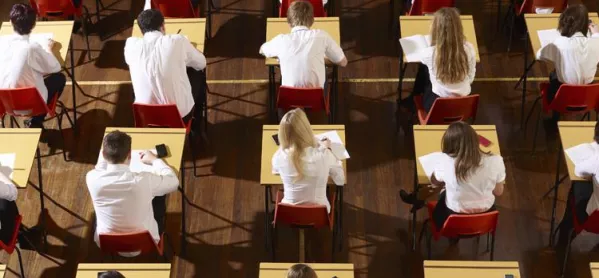- Home
- ‘Independent schools are shamelessly playing the system when it comes to exam grades’
‘Independent schools are shamelessly playing the system when it comes to exam grades’

The appearance of the head master of Eton College, Simon Henderson, before the Commons Education Select Committee on 28 September was a first for that school, which usually manages its public relations in ways that burnish the gloss on its image.
However, Eton received some unwelcome publicity in August, when one of its senior teachers and, a few days later, a teacher at Winchester College left their schools after revealing Pre-U (short for pre-university, an alternative to A level) examination questions before the candidates sat them. Both knew the questions because they were part of the teams of people setting the papers in subjects that they taught in school.
I applaud the use of serving teachers being involved in the setting of questions, provided that these questions are fed into a question bank from which examination papers are constructed by those who have no contact with those sitting the test. Ofqual needs to grasp the nettle on this.
The reason that this misconduct was more likely to occur in Pre-U than in, say, A level or GCSE is because Pre-U is taken by a small number of candidates from a very small range of schools, so the likelihood of the question setter being a teacher of some of the candidates is much greater.
Pre-U was launched in 2008 by a group of expensive independent schools seeking to enhance their place in the market through the appearance of exclusivity. Cambridge International Examinations (CIE) saw the opportunity of a profitable new line and worked with teachers in these schools to develop 27 old-fashioned linear examinations, which they marketed as being superior to the A levels taken by the vast majority of examination candidates in the 18-year-old age group. This perceived superiority is illusory.
The International GCSE, or IGCSE, is another old-fashioned CIE examination, based on GCE O-levels that were abolished 30 years ago. IGCSE exams are used in over 100 countries. In England, they have been taken disproportionately in independent schools, which saw them as a means by which they could market their education as more “rigorous” than in state schools.
Some state schools - particularly those that view themselves as competing with the independent sector for bright pupils - have also used the Pre-U and IGCSE.
But now that GCSE and A levels have been made harder post-Gove, the Pre-U and IGCSE may have become easier in comparison, with Richard Cairns, head of the independent Brighton College, being quoted in the Times as saying: ”It has been an open secret for some time that it is easier for schools to secure more A* grades by opting for IGCSE rather than GCSE. There clearly isn’t a level playing field. You can’t blame independent schools for playing the system.”
Well, Mr Cairns, I can - and do - blame independent schools for “playing the system”. Education in England needs principled leadership as much from independent school heads as from their state school counterparts.
Part of that leadership should be fighting within the system for good examinations, not backing into a privileged independent corner and using different examinations from the vast majority of young people in the country.
‘It should be a level playing field’
The pernicious effect of league tables on independent schools is at least as great as on state schools. Indeed, it was John Clare in the Daily Telegraph who started the whole league table trend when he put independent schools into four divisions according to their examination results. With several of the most expensive schools in division four, independent school heads began to look more carefully at the small print of their contracts, just as many state school heads have had to do when their school’s examination results decline.
High-stakes accountability makes it especially important that the examination system is scrupulously fair, both within and between sectors. So there should be no opportunities for one group of schools to be able to use its independence to “play the system” - everyone should be on the same playing field.
This means that independent schools should come out of their bubble and work with their maintained school peers for the improvement of the whole system, for the benefit of all young people. Indeed, their independence can be the strongest card in this process. Precisely because they can go their own way and ignore the stupidest of the regulations placed on state schools, independent school leaders can be the canaries in the education mine, being in the best possible position to campaign for sensible government policies and high-quality examinations if their students are taking the same exams as everyone else.
Unfortunately, too few independent school heads work closely with their maintained-school peers, as my fellow Tes columnist, Bernard Trafford, did throughout his 26 years of independent school headship. If Eton and Winchester had taken the main-road examination route, instead of the Pre-U side street, they would not have suffered public embarrassment, and the A-level system would have been richer for the involvement of their knowledgeable and experienced staff.
John Dunford is chair of Whole Education, a former secondary head, general secretary of the Association of School and College Leaders and national pupil premium champion. He has published the book The School Leadership Journey. He tweets as @johndunford
For more Tes columns by John, visit his back-catalogue.
Want to keep up with the latest education news and opinion? Follow Tes on Twitter and Instagram, and like Tes on Facebook
Keep reading for just £1 per month
You've reached your limit of free articles this month. Subscribe for £1 per month for three months and get:
- Unlimited access to all Tes magazine content
- Exclusive subscriber-only stories
- Award-winning email newsletters



